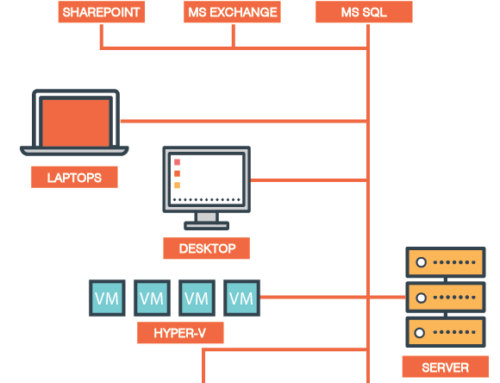What Are The Benefits of Cloud-managed Services?
Cloud computing services are growing ever-popular – but what is the overriding benefit of partnering with a leading cloud services provider?
Cloud computing is a way of delivering computer resources, and virtual services, over the Internet instead of having them installed locally. This allows companies to access their data from anywhere at anytime. It also helps to reduce security issues and everyday network issue concerns en-masse.
No matter your business goals, it is always worth considering the wider benefits of moving your storage and infrastructure – as well as any network operations – into private or public cloud-based services. Let’s take a closer look at the main benefits of cloud services and cloud platforms for businesses looking for closer management.
Cost Savings
The cost savings for businesses undertaking cloud services are almost immediate. A cloud environment can cut costs for enterprises by up to 80% without compromising on performance. It means that cloud users don’t have to invest in expensive hardware and software solutions to support their needs. Instead, they can use off-the-shelf products, which are often offered at reduced prices when compared to traditional enterprise-grade systems. There’s also money saved when it comes to fewer security risks, and less need for costly downtime. You’ll get minimal downtime with cloud services thanks to decentralised operations. A monthly service plan provides immense value.
Increased Efficiency
Beyond cost efficiencies, another benefit of cloud-based services is increased operational efficiency. Cloud environments allow organisations to scale on demand, meaning that there is no need to build additional capacity ahead of time. Because all of the IT functions are handled by a third party, cloud providers also offer 24/7 technical support to ensure that problems are resolved quickly. They also provide regular updates so that customers’ systems – and quick response times arrive guaranteed.
Scalable Services
As mentioned, hybrid clouds and otherwise provide scalable business operations to a near unlimited extent. The more resources you add, the higher the level of service you receive. With cloud-based services, this scalability is easy to achieve. By choosing the right provider, you can choose the number of servers required and the size of those servers. In addition, you can upgrade or downsize your server capacity whenever needed. For example, if you want to increase the number of employees working within an organisation, you can simply add new servers. The same goes for applications and programs, too.
Disaster Recovery Plan On Demand
All businesses need backup plans – and the heart of security protection cloud service providers have to offer lies in critical business backups that are ready to go. Cloud technology offers disaster recovery services that can be deployed instantly. These can include everything from email archiving to online document storage. As soon as a problem arises, the cloud provider will activate these back-ups and restore critical files in seconds. This ensures that you’re protected against loss of data regardless of the cause.
Cloud Security
With cloud-based services, you can rest assured that your data will be protected. If something happens to one of your servers, it won’t affect the other ones. Your data is stored across multiple
locations, providing redundancy and improved availability. If you’re worried about the possibility of losing your data, then cloud-based services offer peace of mind. When you use these services, you know that your information is secure and safe.
Rapid Response
Your cloud services provider is always on hand to react with network monitoring whenever you need them to. You not only benefit from a robust network infrastructure on a floating basis, but one that works for you when you need it to. Rapid response from a cloud service provider will enable you to make informed decisions based on real-time analysis of system performance. This sort of access allows you to keep track of your core business’s most important assets and maintain control over your processes.
Access Anywhere
Of course – a leading benefit that cloud managed services providers have to offer is the fact that data, applications and servers can be accessed almost anywhere – remote cloud services are accessible via mobile devices, in-house computers and more. In the age of remote working, it’s
important to be able to access your vital information wherever you are, whether you’re at home or on the road. You can also launch cloud-based applications wherever you may be, too.
What are the knock-on effects for a business environment in the cloud?
A business owner that moves its business continuity into the cloud will be able to evolve with customer demands and changing business practices as and when necessary. What’s more, cloud computing can benefit all types of businesses – small, large and medium enterprises alike.
In addition, the monthly cost of cloud operations will pay for itself in years of growth – regardless of payment plans. The network issues of traditional IT management become problems of the past – making it easier for businesses to plan ahead.
If your business is striving to draw up an action plan or risk assessment strategy to weather the years to come, now is the time to start considering management models in the cloud. Get in touch with leading cloud technicians now to learn more. You can still host an in-house team – but with cloud deployments, you’re future-proofing your business even further.




